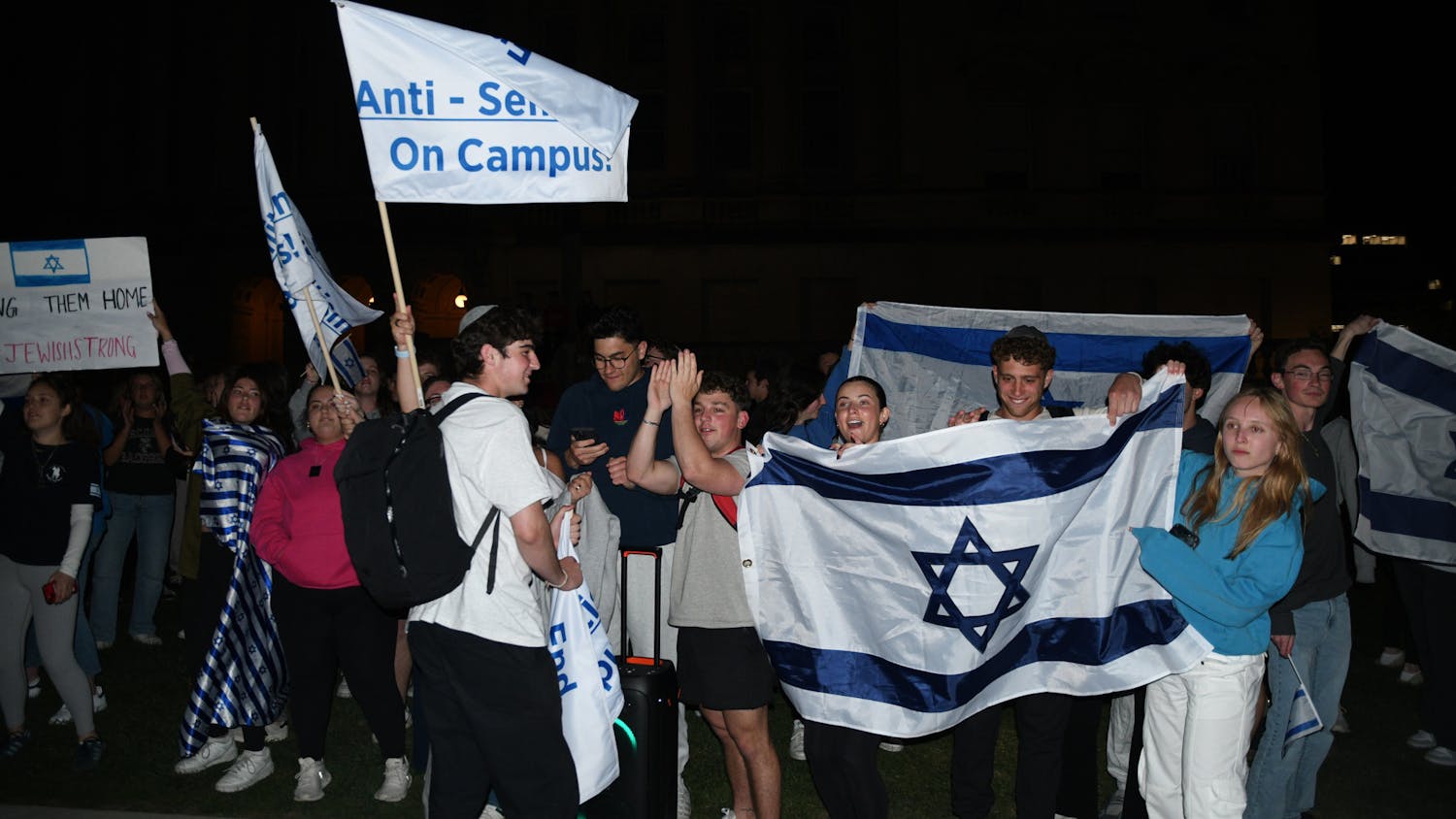These credentials might sound like those of a Cinderella team: predicted to finish sixth in its conference, clinches its third NCAA Tournament appearance in more than 40 years and later, its first NCAA Tournament wins since 1960'all this amounting to conference Coach of the Year honors for Head Coach Ernie Kent.
But this team, the Oregon Ducks, is no Cinderella. Not when its Tournament wins come as a No. 2 seed, and not after dominating a strong Pac-10 Conference to claim the regular-season title by two games over a host of imposing opponents.
The Ducks, 25-8 after their surprising run was cut short in the Pac-10 Tournament, earned a favorable seed in a favorable city. Playing in Sacramento, Calif., helped them beat Montana and Wake Forest, setting up a matchup with Texas Friday at the Kohl Center.
However, Oregon's road to Madison has taken quite some time to pave. The last time the Ducks won their conference was
1944-'45, and their last outright championship was in 1938-'39.
Kent had an equally long road before taking the reins at his alma mater. Kent, a Rockford, Ill., native, played for the Ducks and coached in Saudi Arabia, at Colorado State, Stanford and St. Mary's (Calif.) before taking the Oregon job. Kent, in his first head coaching stint in the United States, took St. Mary's to the 1996-'97 West Coast Conference Championship and an NCAA Tournament berth before assuming the Oregon job.
Oregon, which had only notched occasional National Invitational Tournament bids and one NCAA berth in 1995 before Kent's arrival, quickly made the NIT Final Four in 1998-'99, Kent's second season.
The Ducks looked ready to spread their wings and fly in 1999-'00, finishing 22-8 overall and in third place in the Pac-10 before Seton Hall upset them in the first round of the NCAA Tournament.
Despite signing some acclaimed recruits on the heels of their regular season, the Ducks fell to 13-14 in 2000-'01. The offensively potent Ducks struggled to stop anyone on defense, finishing as the Pac-10's worst. Bryan Bracey, an all-Pac-10 forward and Oregon's leading scorer, graduated and observers expected a mid-conference finish this year.
In Oregon's youth, however, was plenty of previously latent talent. Sophomores Luke Ridnour, a point guard, and Luke Jackson, a forward, both members of the solid 2000 recruiting class, worked like fools in the off-season, also pushing senior guard Frederick Jones, the default team leader after Bracey's departure, to improve his game.
The \big three"" became the Ducks' offensive power. Each bolstered his individual statistics from a year ago.
In the process, Oregon, one of the nation's quickest teams in moving the ball up the floor, also became one of the nation's premier shooting teams, being among the nation's elite in field-goal, free-throw and three-point percentages.
Ridnour, the 2000-'01 Pac-10 Freshman of the Year, became arguably one of the nation's best point guards. Wake Forest Head Coach Skip Prosser likened Ridnour to Leonard Bernstein after seeing firsthand how Ridnour conducts Oregon's balanced floor attack.
The Ducks also transformed themselves on defense, moving up to the fifth-best scoring defense in the Pac-10, in addition to having the third-fewest fouls per game in the Pac-10.
The Ducks were therefore able to keep their opponents quiet in games that would have been shootouts, and garnered the nation's sixth-best per-game scoring margin.
With 6'7"" Jackson, 6'8"" junior forward Robert Johnson and 7'2"" senior center Chris Christofferson in Oregon's frontcourt, their team's inside rebounding and defensive presence both improved.
Texas will have its hands full Friday with Oregon's big three, who scored 81 of the Ducks' 92 points in the Wake Forest victory. Stopping the trio, if only from behind the arc or from the field, has been a rare feat for Ducks opponents.
Make no mistake, despite being somewhat unknown, the Ducks' high-octane offense and revamped defense makes them a national title contender.





